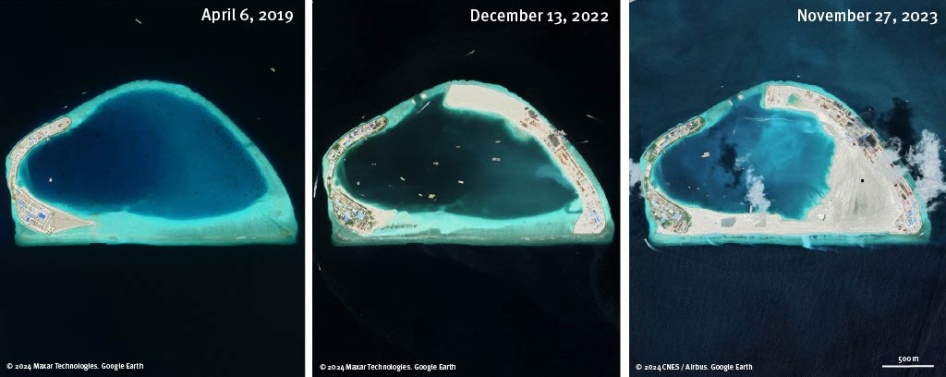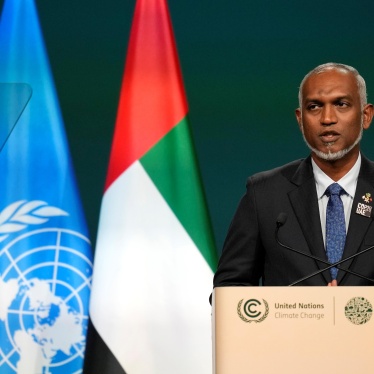An ongoing court case in the Maldives sheds light on why it is so hard to get the government to enforce the country’s environmental laws.
The Maldives is one of the most vulnerable countries in the world to the consequences of climate change, with 80 percent of the archipelago’s islands less than a meter above sea level. The government has enacted significant environmental legislation, most notably the Environment Protection and Preservation Act, which mandates Environmental Impact Assessments (EIAs) for all development projects.
The act stipulates that EIAs must be carried out before development projects can be approved. However, government ministries often preapprove projects, rendering EIAs little more than box-ticking exercises. A former official from the Maldives Environmental Protection Agency told Human Rights Watch that once EIAs are published for a particular project, officials often reject most of the recommendations.
These issues are being played out in Maldives courts in the case of the Gulhifalhu reclamation project. In 2019, the Maldives government awarded the project to the Dutch construction company Boskalis without any formal tendering process, in a deal reportedly worth US$53 million. Six months later, the authorities released an EIA that revealed that the project could cause irreversible environmental damage. The decision to proceed with the project had been made prior to the completion of the EIA.
In 2021, climate activist Humaida Abdul Gafoor filed a case against the government on the grounds that the reclamation project risked causing serious economic, environmental, and cultural harm to the local community.
Earlier this month, climate activists were encouraged when the high court issued an injunction to suspend work on the reclamation project with immediate effect, pending a final ruling in the case. However, the government immediately appealed the injunction to the Supreme Court, arguing that a halt would cause severe financial losses to the project. The Supreme Court lifted the injunction, allowing work on the project to continue.
The case can still proceed to the merits, even as the reclamation continues to cause harm. But importantly it has already put the government on notice that if it wants this and similar projects to continue, it will be subjecting its lax enforcement of the country’s environmental protection laws not only to judicial scrutiny, but to the scrutiny of the Maldives public and beyond.
Instead, the Maldives government should be championing its environmental protection laws and minimizing the environmental damage caused by development projects.








